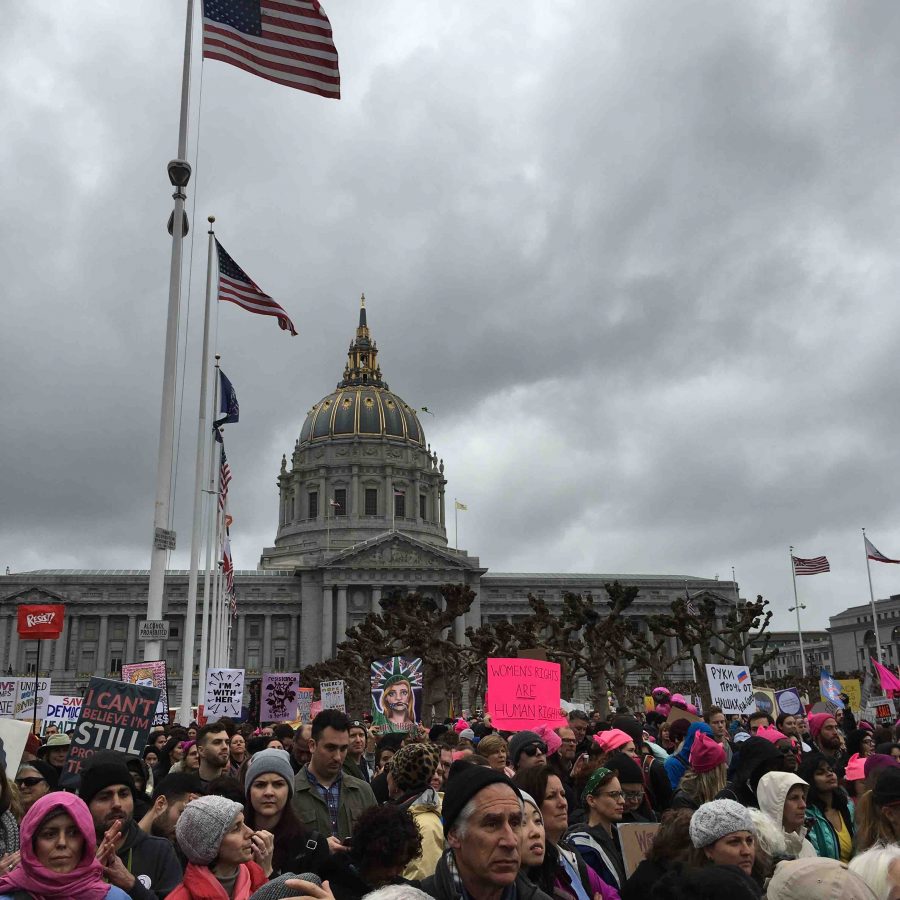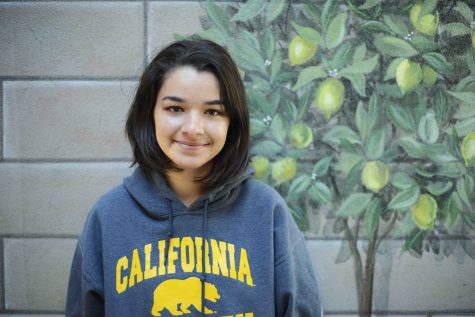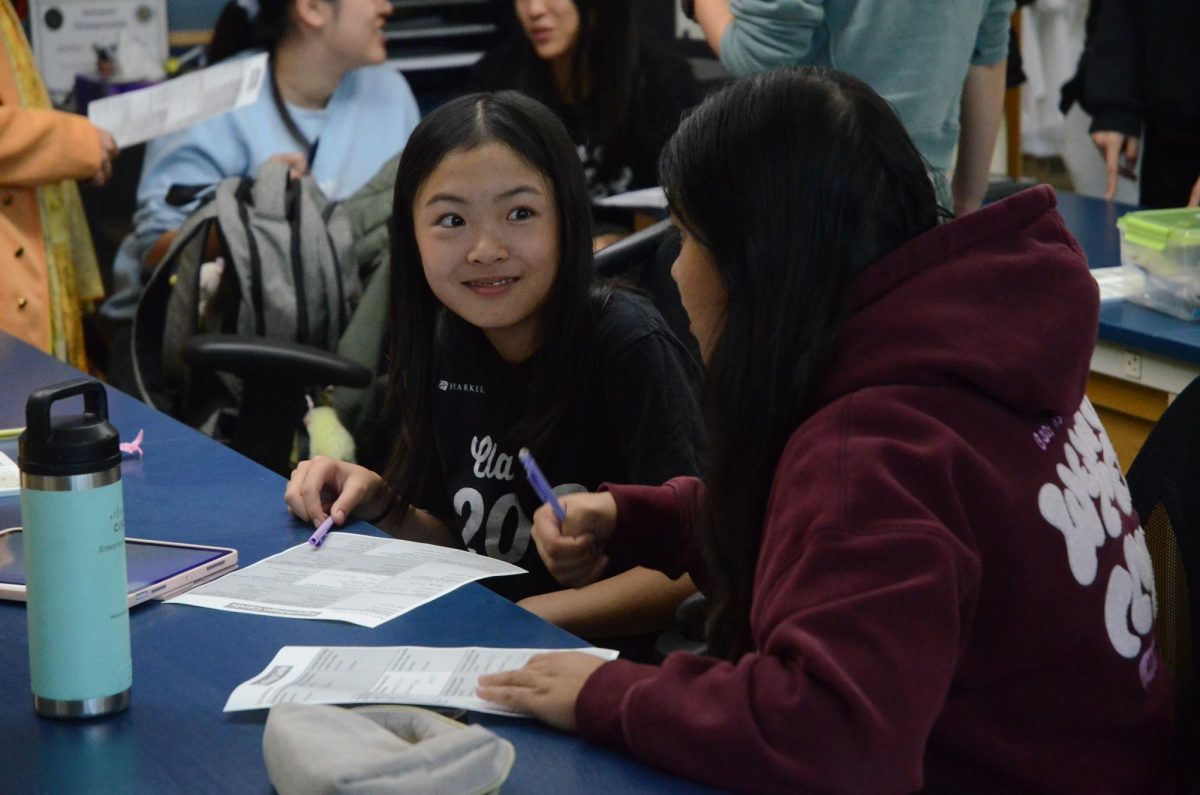Record number of individuals participate in Women’s Marches across globe
Courtesy of Ellen Austin
Participants in the Women’s March in San Francisco hold up signs. The number of demonstrators in major cities across the country as well as overseas significantly exceeded the amount of expected participants.
January 22, 2017
Close to 210,000 Bay Area residents traveled to the cities of San Jose, Oakland and San Francisco yesterday to participate in a series of marches, most prominently Women’s Marches, in protest against Trump’s Friday inauguration. The number of demonstrators in major cities across the country as well as overseas significantly exceeded the amount of expected participants.
The crowd in San Jose began their demonstration with a 10 a.m. march at the San Jose City Hall and then held a rally from 12 to 3 p.m. at the Cesar Chavez Plaza. While protesters in Oakland also opened with a march—theirs starting at 10 a.m. but at Oakland’s Madison Park—San Francisco’s event first invited those interested to a rally at 3 p.m., then a 5 p.m. march from Market Street to the Justin Herman Plaza.
Individuals participating in the marches focused their efforts on raising awareness for a variety of issues; some carried signs with the slogans “Stop the War on Women” and “Women Can!” to draw attention to women’s rights, others aimed for a message of inclusivity and chanted “we are all immigrants.”
“I had made a sign [with the Maya Angelou quote] ‘We are only as blind as we want to be.’ I believe that we all have to be open to learning more about national issues; we need to better understand how the government controls the rights of citizens and how we as individuals can take action,” San Jose march attendee Evani Radiya-Dixit (12) said. “I personally feel strongly about birth control, abortion and related legal rights.”
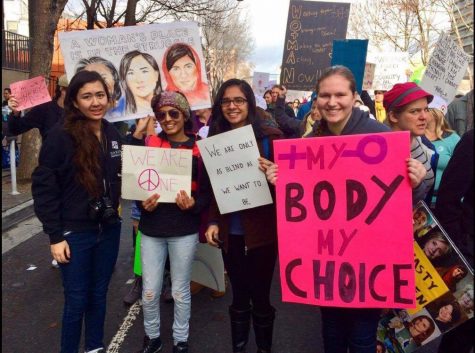
Seniors Alexa Gross, Aditi Maheshwari, Evani Radiya-Dixit and Molly Wancewicz hold signs during the Women’s March in San Jose. The number of demonstrators in major cities across the country as well as overseas significantly exceeded the amount of expected participants.
Yesterday’s events, coordinated by the organization Women’s March Bay Area, are some of the sister marches to Washington D.C.’s Women’s March on Washington. Over half a million protesters—against a projected turnout of 200,000 participants—marched from the Capitol to the White House.
Participants came together in unexpected numbers in the United States as well as abroad; in Los Angeles an estimated 750,00 people demonstrated, in New York City and Chicago approximately 250,000 people marched and in London, Paris, Berlin and Sydney an overwhelming number of individuals extended their support for women in the U.S and stood as proponents of global change.
A number of individuals also travelled to participate in the march on Washington D.C., the heart of the movement. Bay Area resident Yasemin Denari Southworth describes her experience as one of the participants marching in solidarity for social equity in the country’s capital.
“I attended because I wanted to be a part of this movement and because I think now more than ever it is important for women’s and all people’s voices to be heard,” she said. “I did not carry my own sign but wore pins that said ‘Love Trumps hate’ and ‘Let’s talk climate.’ I support equal rights and diversity and want to promote unity, peace, and the protection of our planet.”
Some protesters sported pink “pussyhats” during their marches and rallies. A nod to Trump’s leaked hot mic tape of comments on his sexual advances towards women, the clothing accessory was a prominent part of Women’s Marches across the country.

Participants in the Women’s March in San Francisco hold up signs. The number of demonstrators in major cities across the country as well as overseas significantly exceeded the amount of expected participants.
Ellie Lang-Ree (10), who attended the march in San Jose, described the significance of the “sea of pink” launched by the Pussyhat Project in the demonstrations.
“These hats have come to symbolize that women are in control of their own bodies and will not allow sexual assault or sexism to continue,” she said. “I do believe, however, that though these hats were awesome methods of showing solidarity with women against Trump and assault, they do not include our transgender sisters who, though they don’t have the same genitalia, identify as female and deserve the same equal rights as all cisgender and LGBTQ+ women.”
While the Women’s Marches took place in areas scattered across the globe, a palpable aura of passion pervaded the scenes of each demonstration and unified the marches as one worldwide movement.
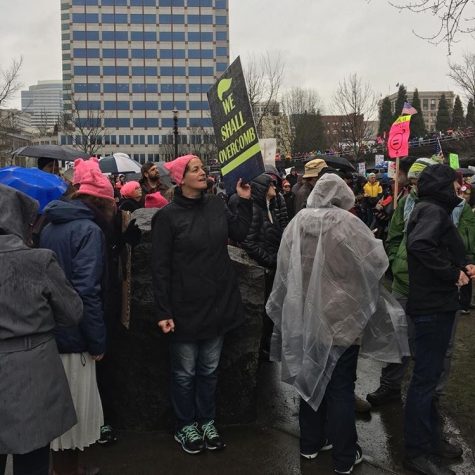


















![“[Building nerf blasters] became this outlet of creativity for me that hasn't been matched by anything else. The process [of] making a build complete to your desire is such a painstakingly difficult process, but I've had to learn from [the skills needed from] soldering to proper painting. There's so many different options for everything, if you think about it, it exists. The best part is [that] if it doesn't exist, you can build it yourself," Ishaan Parate said.](https://harkeraquila.com/wp-content/uploads/2022/08/DSC_8149-900x604.jpg)




![“When I came into high school, I was ready to be a follower. But DECA was a game changer for me. It helped me overcome my fear of public speaking, and it's played such a major role in who I've become today. To be able to successfully lead a chapter of 150 students, an officer team and be one of the upperclassmen I once really admired is something I'm [really] proud of,” Anvitha Tummala ('21) said.](https://harkeraquila.com/wp-content/uploads/2021/07/Screen-Shot-2021-07-25-at-9.50.05-AM-900x594.png)







![“I think getting up in the morning and having a sense of purpose [is exciting]. I think without a certain amount of drive, life is kind of obsolete and mundane, and I think having that every single day is what makes each day unique and kind of makes life exciting,” Neymika Jain (12) said.](https://harkeraquila.com/wp-content/uploads/2017/06/Screen-Shot-2017-06-03-at-4.54.16-PM.png)








![“My slogan is ‘slow feet, don’t eat, and I’m hungry.’ You need to run fast to get where you are–you aren't going to get those championships if you aren't fast,” Angel Cervantes (12) said. “I want to do well in school on my tests and in track and win championships for my team. I live by that, [and] I can do that anywhere: in the classroom or on the field.”](https://harkeraquila.com/wp-content/uploads/2018/06/DSC5146-900x601.jpg)
![“[Volleyball has] taught me how to fall correctly, and another thing it taught is that you don’t have to be the best at something to be good at it. If you just hit the ball in a smart way, then it still scores points and you’re good at it. You could be a background player and still make a much bigger impact on the team than you would think,” Anya Gert (’20) said.](https://harkeraquila.com/wp-content/uploads/2020/06/AnnaGert_JinTuan_HoHPhotoEdited-600x900.jpeg)

![“I'm not nearly there yet, but [my confidence has] definitely been getting better since I was pretty shy and timid coming into Harker my freshman year. I know that there's a lot of people that are really confident in what they do, and I really admire them. Everyone's so driven and that has really pushed me to kind of try to find my own place in high school and be more confident,” Alyssa Huang (’20) said.](https://harkeraquila.com/wp-content/uploads/2020/06/AlyssaHuang_EmilyChen_HoHPhoto-900x749.jpeg)



